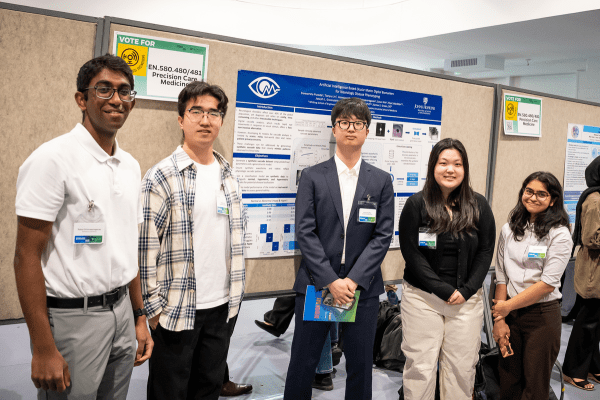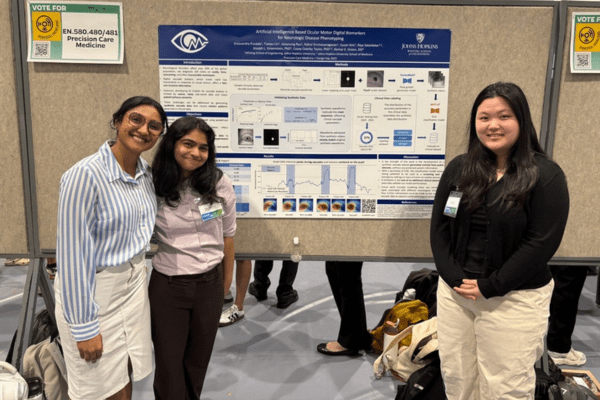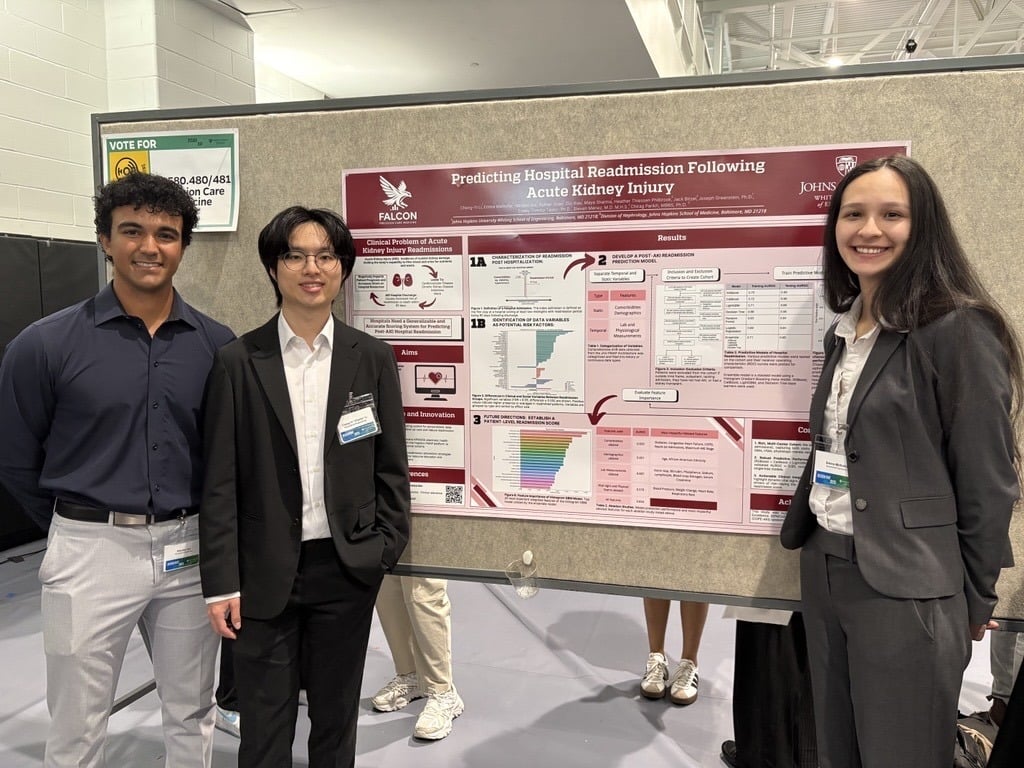Precision Care Medicine is a two-semester, project-based learning course offered to biomedical engineering graduate and undergraduate students at Johns Hopkins University. Students work with clinical faculty at Johns Hopkins Medicine to apply machine learning and mechanistic and statistical modeling to develop novel data-driven solutions for important health care problems in critical care, neurology, immunology, cardiovascular care, and more. Precision Care Medicine student teams presented their projects on April 29 at the Whiting School of Engineering’s Design Day, an annual event showcasing student solutions to real-world problems. Below are a few project highlights from the course.
Precision care student projects use machine learning to improve health outcomes
Genomic Subgrouping of ALS Patients to Investigate Differences in Clinical Progression
Team Kiwi Members: Shaili Tripathi, Parimala Vedula, Yike Guo, Trinity Cheng, Ryder Li, Michael Potanin
Team Kiwi is using machine learning to inform personalized treatment for amyotrophic lateral sclerosis (ALS) patients, a progressive neurodegenerative disorder that has a prognosis of two to five years and currently impacts approximately 30,000 patients nationwide. Their project analyzes genetic biomarkers to identify molecular subgroups of ALS patients. By identifying subgroups, researchers can determine variations in disease progression such as decline in muscle function and reflex responses. The team’s findings could one day help clinicians predict a patient’s future symptoms and guide personalized treatment.

Artificial Intelligence Based Ocular Motor Digital Biomarkers for Neurologic Disease Phenotyping
Team Penguin Members: Puvada Sreevarsha, Tianyu Lin, Jooyoung Ryu, Rahul Srinivasaragavan, Susan Kim, Riya Satavlekar
Team Penguin is developing an artificial intelligence model to detect eye movement patterns associated with neurological disorders. Current diagnostic tools like MRI and CT scans are invasive, expensive, and time-consuming. While eye movement data offers a promising, non-invasive alternative, privacy concerns have historically limited the development of AI models in this space. To overcome this, Team Penguin trains their model on synthetic eye movement data that mimics what is seen in clinical data but does not compromise patient privacy. In the future, their model could support rapid neurological screening in emergency settings or even at home via a mobile device.


Predicting Hospital Readmission Following Acute Kidney Injury
Team Falcon Members: Cheng-Yi Li, Emma Meihofer, Nicolas Jos, Ruihan Yuan, Zixi Xiao, Maya Sharma
Team Falcon is working to reduce hospital readmission following acute kidney injury (AKI), a sudden loss of renal filtration capacity that leads to toxin and fluid accumulation. The team trained a machine learning model using patient admissions data — including demographics, comorbidities, lab trends, vital signs, and other physiologic data — to predict risk factors for AKI readmission within 90 days. The model determines a score for likelihood of readmission, which can be used to identify high-risk patients and guide targeted post-discharge interventions. Reducing the number of readmissions will improve patient health and reduce strain on hospital resources, said the team.

